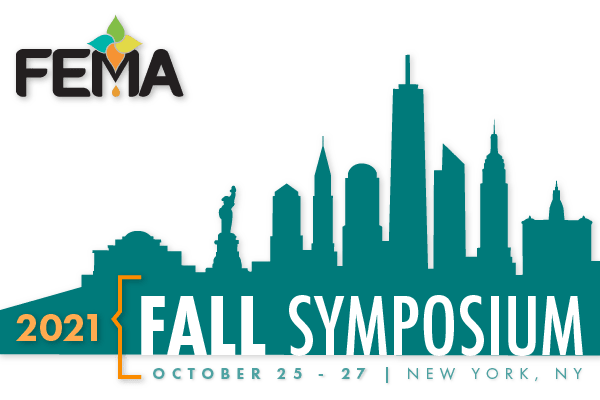SPEAKERS
The Bigger Picture: Business Lessons from the Movies, TV & Popular Culture
Now, more than ever, successful businesses need to have compelling stories that they can share with their customers, employees and business partners. A strong narrative gives a business a backbone upon which to frame its value proposition and differential advantages … without which, in a time of cutthroat competition, no business can thrive.
In this presentation, based on the soon-to-be published “The Bigger Picture: Business Lessons from the Movies, TV & Popular Culture,” co-authored with Kevin Coupe, Michael Sansolo cites examples ranging from movies such as The Princess Bride, The Post and The Big Sick, plus TV shows ranging from “Downton Abbey” to “Billions,” plus the novels of Ace Atkins and Michael Connelly - all to illustrate how to create and tell an effective story and create metaphors that can help drive your business forward. Entertaining and engaging, this presentation will change the way people think about the way they approach branding, customer service, and the nature of leadership.

Michael Sansolo
Retail Food Industry Consultant
Click here for full bio
Michael Sansolo, the long-time senior vice president of the Food Marketing Institute and past editor-in-chief of Progressive Grocer, offers a diverse and unique view of the changing nature of today’s shoppers and their impact on the food retail industry. Through countless studies and work with some of the world’s most innovative retailers and manufacturers, Sansolo has an excellent perspective on the changing nature of shopping, cooking, eating and competition.
In his 13 years as senior vice president at FMI, the biggest food retail association in the United States, Sansolo had oversight over all education, supply chain and research activities. Prior to joining FMI, Sansolo was editor-in-chief of Progressive Grocer magazine and was a reporter for Gannett Newspapers. In his career he received a number of awards for excellence in writing and reporting. He authored the magazine’s Annual Report of the Grocery Industry along with many other major research-based studies.
Sansolo is a frequent speaker at industry conferences and company meetings in United States and around the globe addressing crowds from 20 to 4,000; from college students to CEOs of Fortune 100 organizations.
He is a current member of the Coca-Cola Retailing Research Council and is a past member of the American Greetings Research Council. He currently serves on the board of The Food Institute and Aisle 7, the makers of Health Notes. He is a long-time member of the industry advisory board at Western Michigan University and has worked with students at St. Joseph’s University in Philadelphia, George Mason University in Virginia and Portland (OR) State University. Sansolo is contributing editor and a weekly columnist for Morningnewsbeat.com.
Sansolo is a graduate of the State University of New York College at Cortland with a degree in political science, economics and journalism. Sansolo and his wife, Janice, have two children and are active in many school and community events.
Taste and Smell Loss in the Post-COVID Era: The Changing
Face of Flavor Perception
Sudden onset of taste and smell loss was clearly established early in the pandemic as a distinct, early symptom of COVID-19 infection. While many recover these senses relatively quickly, extended sensory impairment occurs in a significant proportion of people - even in those who had generally mild symptoms otherwise. Ongoing smell and taste distortions and hallucinations have a great adverse effect on quality of life. Data are rapidly evolving, but there is reason to foresee a dramatic and extended shift in flavor perception in the millions of people affected. The impact on the consumer population will be to extend the range of sensitivity downward, increasing the need for product personalization.

Nancy E. Rawson, Ph.D.
Associate Director and Vice President, Monell Chemical Senses Center
Click here for full bio
Nancy E. Rawson has served as Vice President of the Monell Chemical Senses Center since 2019. A highly accomplished scientist and leader who returned to the Center in 2016 in the role of Associate Director, Rawson works closely with Monell’s leadership on strategic and operational plans to guide Monell’s future. Rawson’s broad-based experience spans academia and the food, flavor and nutritional products industries. After earning a master’s degree in nutrition, she earned her doctorate in biology from the University of Pennsylvania in 1993. After receiving postdoctoral training at Monell she joined the Center’s faculty, where she remained for the next 15 years. During this time, Rawson’s research focused on how diet, health and age affects taste and smell. In 2008, Rawson left Monell to become chief scientific officer at a nutrigenomics startup. Later, she served as Senior Director of Basic Research and Innovation at AFB International, a global pet food ingredient company. She returned to Monell in 2016 to assume oversight of Monell’s long-standing corporate partnership program, with a focus on helping Monell’s industry partners translate the Center’s basic research into beneficial real-world applications.
Challenging Flavor Claims – A Litigation Update
The flavor of finished food products continues to be an important driver in consumer buying decisions. Therefore, the descriptions of the nature and flavor of a finished food or beverage product, both in terms of pictorial and text elements on the product’s front packaging, are critical. And consumer class action attorneys have taken notice. In this session, we will investigate the evolution of food claim litigation to its current focus on flavor claims. We will explore the types of flavor claim litigation beyond vanilla product labeling cases to understand the trajectory of the litigation landscape.

Joanna Drake
General Counsel, FEMA
Click here for full bio
Joanna Drake serves as General Counsel to FEMA. With more than a decade of flavor industry experience, her work with the association has covered a variety of regulatory and legal issues, including flavor and finished product labeling. Ms. Drake has given presentations to FEMA and other organizations on the current labeling implications of flavor, anticipated federal administrative action regarding “natural” labeling and the litigation landscape involving ingredient and food labeling. Prior to joining FEMA, she served as Assistant Counsel to WILD Flavors, Inc., where she worked on a variety of transactional issues and provided strategic legal counsel on product labeling and compliance matters.
Open Channels: Working Together to Address Supply Chain
Impacts - COVID-19 and Beyond
The Open Channel Forum facilitates transparency in business relationships by exploring topical issues, confronting challenges, and discussing best practices among stakeholders in the flavor industry. At the 2021 Fall Symposium Open Channel, the Chairs of the Consumer Product Companies and Regulatory Affairs Committees will address the unique challenges arising from raw material shortages and supply chain disruptions due to COVID-19.
Miriam Maxwell, Ocean Spray Cranberries, Inc.
FEMA Consumer Product Companies Committee Chair
Vince Rinaldi, PepsiCo
FEMA Consumer Product Companies Committee Past Chair
Randy Knecht, MANE Inc.
FEMA Regulatory Affairs Committee Chair
Victoria Alvarez Saveedra, Virginia Dare
FEMA Regulatory Affairs Committee Vice Chair
Chemical, Physicochemical and Sensory Dimensions of the
Flavor of Distilled Spirits
Flavor perception of a distilled spirit is a multidimensional and complex experience, encompassing the sensory impacts of the aromatic, taste and somatosensory components perceived in the mouth. Understanding these perceptions and the components responsible for them is essential for the development, maintenance and improvement of product quality and consistency. Sensory-directed analysis techniques have enabled researchers to deconstruct the aroma profiles of some spirits, but the complex chemistry and physicochemical characteristics that drive the sensory experience are still unknown. This talk will present a current perspective on the flavor chemistry and sensory perception of distilled spirits and the effects of ethanol on perceived aroma, taste and mouthfeel properties.

Keith Cadwallader, Ph.D.
Professor, Department of Food Science & Human Nutrition, University of Illinois at Urbana Champaign
Click here for full bio
Professor Keith R. Cadwallader received his B.S. degree in food science from the University of Georgia (1985), and his M.S. (1987) and PhD. (1990) degrees in food science from the University of Florida. He worked as an assistant professor at Louisiana State University (1991-1994) and as an assistant/associate professor at Mississippi State University (1994-1999) before joining the faculty of the University of Illinois at Urbana-Champaign in 1999. He currently holds the rank of professor of food chemistry within the Department of Food Science and Human Nutrition, College of Agricultural, Consumer and Environmental Sciences at the University of Illinois.
Dr. Cadwallader’s main research interest is centered on the study of food flavor as it relates to overall food quality. He has made significant contributions to three main research areas: 1) identification and characterization of key flavor (aroma) compounds, 2) determination of the interaction of flavor compounds with food matrix components and 3) development of methods to stabilize labile potent flavor compounds. In recognition of his research efforts in the field of flavor science, he received the 2007 Stephen S. Chang Award for Excellence in Lipid or Flavor Science (Institute of Food Technologists) and the 2021 FEMA Excellence in Flavor Science Award (Flavor & Extract Manufacturers Association of the United States). In 2010, he was elected Fellow of the Agricultural and Food Chemistry Division (American Chemical Society). He was awarded the University of Illinois 2016 College ACES Senior Faculty Award for Excellence in Research and the 2017 College of ACES Paul A. Funk Recognition Award, which is the College’s highest honor presented to faculty for outstanding achievement and major contributions to the betterment of agriculture, natural resources and human systems. Dr. Cadwallader was elected as 2020 Fellow of the Institute of Food Technologists and 2021 Fellow of the American Chemical Society.
COMMITTEE SPEAKERS
Worldwide Supply Chain Shortages and Their Impact on the Food Industry
International supply chain issues are causing disruptions and creating a ripple effect on the food industry. Tom Madrecki will discuss the perfect storm of events that created shortages, some of the impacts and what we might be able to expect in 2022.

Tom Madrecki
Vice President, Supply Chain and Logistics, Consumer Brands Association
Madagascar Vanilla Policy Developments and Implications
for Farmer Livelihoods
Recent studies from Fairtrade on costs of living and farm economics have helped SVI members better understand what producers need to earn at least the equivalent of a living wage for growing vanilla. This session will share these living income findings as well as discuss recent changes in vanilla sector policy in Madagascar and the implications for sustainability and livelihood work.

Don Seville
Sustainable Vanilla Initiative
Overview of the Toxicology Testing used for GHS
Human Health Hazard Labeling
The Globally Harmonized System of Classification and Labelling of Chemicals (GHS) identifies the potential hazards or risks to human health resulting from exposure to chemical(s). While there are subtle differences in how hazards are classified from one region to another region, the overall classification scheme remains consistent throughout the world. This presentation will provide an overview of the types of toxicology testing that are used for human health hazard classification and labeling in the eighth revised edition of GHS.

Christopher Choi, Ph.D., DABT, ERT
Vice President of Corporate Safety & Regulatory Affairs, Takasago International Corp. (USA)
The Psychology of Food Choices
Consumer food choices are influenced by multiple factors that go well beyond what is on the package label. In this presentation, we will discuss the personal and social psychology behind how consumers choose the foods they buy and consume and why they reject others that are safe, wholesome, and nutritious.

William K. Hallman, Ph.D.
Professor/Chair, Department of Human Ecology, Rutgers University – School of Environmental and Biological Sciences
Click here for full bio
Dr. William K. Hallman is a professor and Chair of the Department of Human Ecology and is a member of the graduate faculty of the Department of Nutritional Sciences, and of the Bloustein School of Planning and Public Policy at Rutgers, the State University of New Jersey. He is a 1983 graduate of Juniata College in Huntingdon, Pennsylvania and earned his Ph.D. in Experimental Psychology from the University of South Carolina in 1989. Dr. Hallman’s research examines public perceptions of controversial issues concerning food, health, and the environment. Recent research projects have looked at consumer perceptions and behaviors concerning genetically modified foods, animal cloning, avian influenza, accidental and intentional food contamination incidents, and food recalls. His current research projects include studies of public perceptions and responses to food safety risks, the safety of fresh meat, poultry, game, and seafood products purchased on the Internet, the use of nanotechnology in food, and public understanding of health claims made for food products. Dr. Hallman serves on the Executive Committee of Rutgers Against Hunger (RAH), and helped to found the New Brunswick Community Farmers Market, which offers food insecure residents access to fresh, locally grown, affordable, nutritious, and culturally appropriate produce and other food products. Dr. Hallman formerly served as the Director of the Food Policy Institute (FPI) at Rutgers, and currently serves as the Chair of the Risk Communication Advisory Committee of the U.S. Food and Drug Administration (FDA).
![2021 Fall Symposium - Web Elements_Logo[1]](https://www.femaflavor.org/convention/2021fallsymposium/wp-content/uploads/sites/31/2021/09/2021-Fall-Symposium-Web-Elements_Logo1.png)
